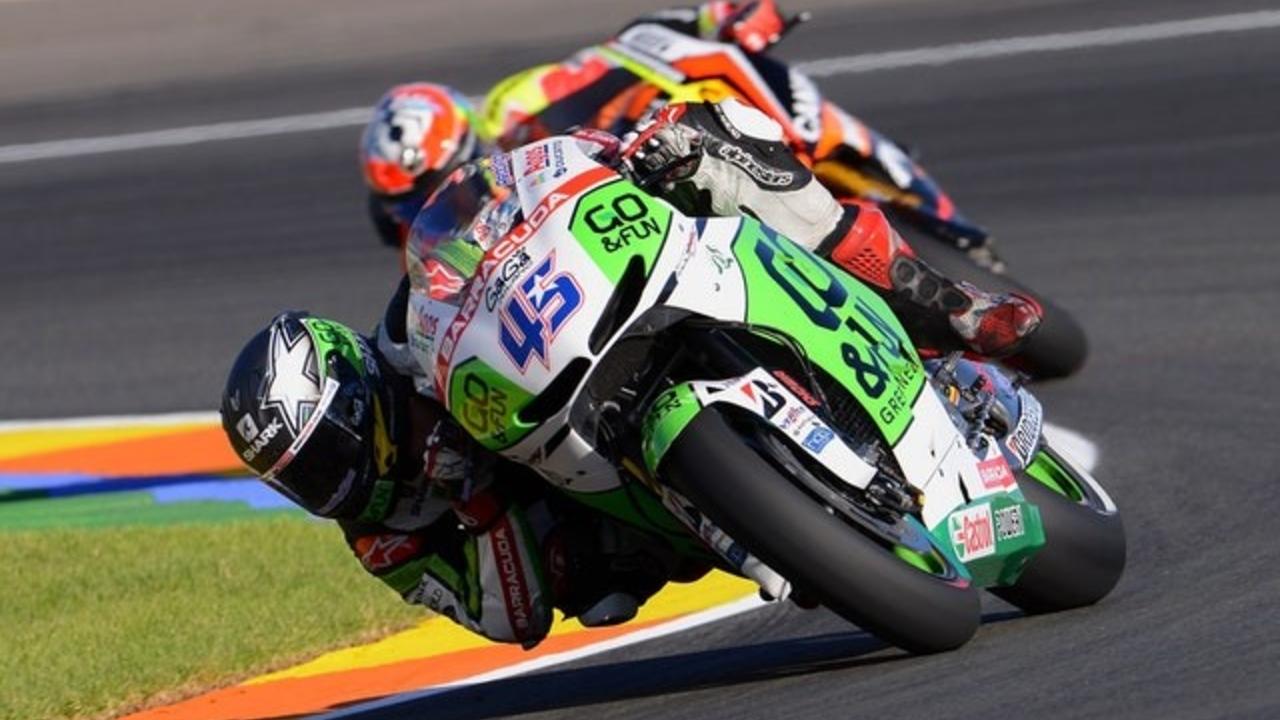
Motorcycles vs. Jumbo Jets
Jun 22, 2020I’m a speed junkie. When I was young, I used to watch A. J. Foyt battle Richard Petty in NASCAR. Since I didn’t own a fast car, the best I could do was take my bicycle off road and imagine I was a motocross racer. As I’ve aged, I’ve migrated from NASCAR to Rally racing and from motocross to MotoGP.
MotoGP racers are crazy. They ride machines capable of heart-stopping acceleration and dare to brake at the last possible second before entering a turn. And in each turn, they lean the motorcycle to the extreme, threatening to either scrape their body on the inside of the turn or lose their grip and go sliding through the outside of the turn. All of this with what appears to be minimal protection.

Every seasoned entrepreneur lives a similar experience. Running a startup demands hyper-aggressive acceleration and iron nerves to push the limits in order to hold your line in a turn, and maximize your speed. Riders must make dozens of split second decisions to accelerate, downshift, brake, lean in, and position the engine in the power band (the range of RPM that produces peak power output) coming out of each turn. Founders must do the same, except instead of a motorcycle, they jockey a company.
If you aren’t lucky enough to race for an established team like Ducati or Red Bull with big funding and a large support staff, you have to wear multiple hats: from racer, to mechanic, to marketer and sponsorship fundraiser. Founders often have to be proficient in multiple business disciplines — particularly in the early stages of the startup. Founders have to be willing to pick up a wrench, pull apart an engine and get greasy. Then they might need to clean themselves up, change into business casual attire, and pitch to a potential investor.
After that, they may have to play diplomat and negotiate with a new customer who complains that the solution doesn’t match the claims made during the sales pitch. And then at a lunch interview, they need to quickly determine if a job applicant with a promising resume will really be a good fit for one of the few engineering roles that the startup can afford.
It’s a difficult mix of demands that call for very broad, experienced, executive skills. Unfortunately, I often see recruiters, investors, or advisors glibly counsel the entrepreneur to pull out all the stops to hire a Senior VP from a large Fortune 500 company to run their sales, business development, marketing or engineering team. The Fortune 500 SVP clearly has a strong set of skills that enabled him/her to play their role in leading 1,000-person teams that drive $1B or more in annual revenue. However, many people fail to recognize that most Fortune 500 SVPs have skillsets unsuited for startup life.
Yes, they carry huge responsibilities, but the machine they ride is not a motorcycle, but a jumbo jet. Yes, Boeing 777 and Airbus A340 pilots are responsible for the lives of hundreds of passengers, but their job requires them to focus more on following rigorous safety protocols, maintaining control, and making fewer, more deliberate decisions - usually with the assistance of advanced instrumentation.

Pilots of commercial jumbo jets aren’t asked to pick up a wrench and sling code, create the detailed requirements to earn a badge in your channel partner program, analyze a competitor’s features against your own, or write copy for product marketing assets. They typically surround themselves with large teams who do these tasks for them. They are usually best at developing policy, working the politics, or mining industry contacts. (I won't even get into the topic of whether a small startup can afford the high-six-figure salary that a Fortune 500 SVP will command.)
When joining a startup, many Fortune 500 executives either move too slowly or make the wrong decisions because they aren’t used to making dozens of judgment calls in just a few seconds. I’ve seen some very senior people who have enjoyed great success in a large company stumble when going to a small company because the job responsibilities - especially at startups with less than 100 employees - are completely different.
I’ve also seen some founders and investors accept a jumbo jet pilot who averages 20 mph each lap around the track because they don’t know that the real racers will average well over 100 mph a lap. The founder often doesn’t realize they are only averaging 20 mph or don’t know that a 15-minute lap time is really, really slow. Inexperienced leaders don’t recognize the problem until they’ve been passed multiple times on race day. But by then you’re way behind the competition or you’ve lost your market lead.
When you’re fighting a global war against terrorism, you definitely want the three-star general in the driver’s seat. You need their inspirational leadership, political moxie, ability to shape public opinion, and experience running multi-year campaigns. However, most young startups don’t need someone who has experience reporting to the Secretary of Defense. Startups need the Navy Seals to execute a hostage rescue operation or a special forces sniper to neutralize an enemy combatant a quarter mile away.
Make sure you understand the actual detailed requirements of the startup role so you can add candidates with the right skillset. For most startups, one or two jumbo jet pilots could possibly help in an advisory role (maybe sometime near the Series B financing) or serve as a full-time employee once the startup reaches some scale. But more often than not, you’ll want a lot of MotoGP racers and pit crew chiefs.
If you're seeking a battle-tested startup veteran who has his fair share of scars as well as successes to guide you through your company's current battles, I welcome you to book time on my consulting calendar.


